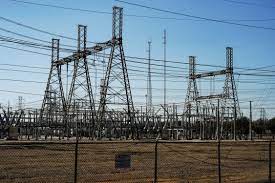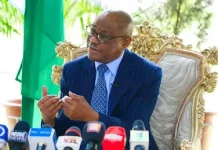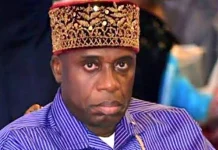In the last seven years, power companies, mostly private entities, may have received about N1.5 trillion in funds from the Central Bank of Nigeria (CBN), which has helped the sector stay afloat.
Experts and power users, on the other hand, are concerned that the situation has not improved, as electricity supply and related services continue to deteriorate.
In recent months, daily power generation has fluctuated between 3,500 and barely 4,000 megawatts (MW). According to the Transmission Company of Nigeria’s (TCN) daily record, the highest power generated was 4,823 megawatts (MW) on Saturday, while the lowest was 3,031MW. This translates to a maximum of 15 hours or less for customers who pay for a 20-hour supply, and even zero hours for those who pay for an eight-hour supply.
According to the CBN’s recently released fourth-quarter economic report 2020 (4Q’2020), while the repayment process for these power sector-centric loans is ongoing, the interventions were intended to speed up power projects, thereby improving the national power grid and end-user experience.
Read also: IPOB: The British Commission and a UK law firm are pursuing Nnamdi Kanu’s case
According to the report, the Power and Aviation Intervention Fund (PAIF) is worth about N300 billion, and the Nigerian Electricity Market Stabilisation Facility (NEMSF) is worth N213 billion, and it was established in 2015 to clear debts owed by power companies and improve operations.
The Rural Electrification Agency has a N140 billion Solar Connection Intervention Facility to improve off-grid electricity access (REA). The CBN also injected another N600 billion for tariff shortfalls and another N120 billion for the ongoing National Mass Metering Programme (NMMP) across the 11 distribution companies (DisCos).
Experts and analysts in the power sector have praised the CBN for its interventions, but they have chastised the power operators, particularly the DisCos, for the lack of improvement in power supply. Others blame the Nigerian Electricity Regulatory Commission (NERC) for regulatory failures, poor tariffs, and other seven-year-long electricity market crises.
The repayment of the loans has been set at 30% in the latest CBN fourth quarter report, and the apex bank has escrowed the DisCos’ accounts to enable it to recoup these loans.
While the CBN is not a sector regulator, analysts at Templars, an economic analysis and law firm, backed the move, stating that given the apex bank’s exposure to the sector through its various interventions, it was critical for the apex bank to influence policies that would address the general electricity market imbalance.
“Gas prices and other elements of the Capital Expenditure (CAPEX) for the power sector participants are dollar-denominated,” the legal firm’s Partner, Dayo Okusami, and Senior Associate, Moses Pila, wrote in a document. There is a perpetual mismatch between revenue earnings and CAPEX inputs with electricity tariffs in Naira.”
They explained that while the exchange rate in the tariff is usually fixed, fluctuations in the general foreign exchange market make it difficult for players to obtain foreign exchange at the tariff-template rate, which is the main cause of the cash crunch in the electricity market.
Read also: Banditry: Nigerian military neutralize scores of bandits in coordinated air strikes in Northwest Nigeria
Although the Central Bank of Nigeria (CBN) provided N702 billion in capital to the Nigerian Bulk Electricity Trading Plc (NBET) in 2018 to save the Generation Companies (GenCos) from going bankrupt because they couldn’t pay for gas, Templars officials say the current situation will necessitate a repeat of that intervention.
“As a result, the GenCos will be able to meet their payment obligations to their gas suppliers. To address the challenges, the CBN may decide to grant the power sector a special foreign exchange dispensation.
“Collection leakages at the DisCo level are another area where the CBN could have an active role. Even if NBET is unable to exert the required influence on the DisCos’ remittance levels, the CBN can act through its banking sector influence.”
Habeeb Jaiyeola, an economist with PricewaterhouseCoopers (PWC), insisted that the CBN intervention remains a positive tool for improving the power sector when asked about the options for saving the ailing power sector. He did say, however, that there should be more aggressive strategies in place to ensure prompt repayment by operators so that the CBN can intervene in other areas of the economy.
Although the operators had not delivered the service improvement to consumers, Kunle Kola Olubiyo, President of the Nigerian Consumer Protection Network (NCPN), said support from the CBN could help cushion the current liquidity crisis.
Olubiyo, on the other hand, believes that the power sector’s intervention schemes should be reviewed across the entire value chain in order to achieve better results in terms of improving electricity supply.
Join Television Nigerian Whatsapp Now
Join Television Nigerian Facebook Now
Join Television Nigerian Twitter Now
Join Television Nigerian YouTUbe Now





